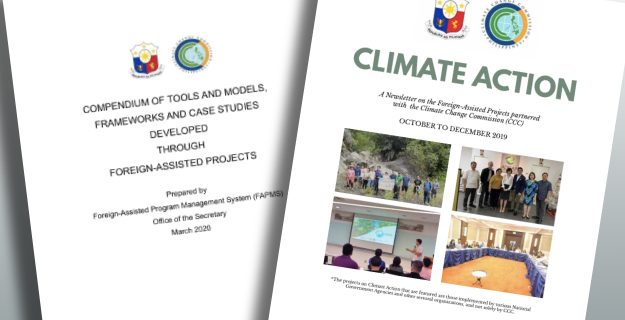The Philippine Center for Environmental Protection and Sustainable Development, INC. (PCEPSDI), through its Sustainable Packaging Towards Marine Litter Reduction Project, held a Training Webinar entitled “Development of a Private Sector Roadmap for Sustainable Packaging Workshop 1: Mapping Out the Challenges and Impacts to Sustainable Packaging” on August 4, 2021. The webinar aims for different private and public sectors in the Philippines to develop their roadmap for sustainable packaging, to raise consciousness for the importance of monitoring the sustainability impact of sustainable packaging, to be aware of the socio-environmental impacts of the packaging industry, urging global efforts for circular economy against marine litter, highlight the importance of waste management system and introduce the working draft of the packaging value chain. During the webinar proper, Mr. Alvaro Zurita, the project team leader of Deutsche Gesellschaft für Internationale Zusammenarbeit (GIZ Philippines), provided the Opening Remarks by asking, “where does waste come from?”. The consumer has a significant role in contributing to marine litter, and they have a big responsibility to alter their bad practice. He also said that sustainable waste management is a simple way to commence, but a person’s physical and mental aspects must arrive together to execute it. Two years ago, Mr. Zurita initiated a circular economy solution towards marine litter reduction with the Philippines, Vietnam, China, Indonesia, Singapore, and Japan as partner countries in response to this problem. As the first speaker, Ms. Paulith Ann Aguilar, the Research Assistant of Philippine Center for Environmental Protection and Sustainable Development, Inc. (PCEPSDI), provides the introduction of PCEPSDI, the National Ecolabelling Programme – Green Choice Philippines (NELP-GCP), and the Sustainable Packaging Project. This project aims to urge people to alter their behavioral patterns in consumption and production that may consequently precede the degradation of our environment through implementing principles of sustainable development. Ms. Aguilar also highlights the Development of Voluntary Guidelines on Sustainable Packaging Towards Reduction of Marine litter and Promoting Packaging from Alternative Materials through Market-based Approach which aims to develop ecolabelling criteria and certify products for sustainable packaging, establish a private sector roadmap and promote sustainable packaging through an environmental education campaign. The Project Consultant of Philippine Center for Environmental Protection and Sustainable Development, Inc. (PCEPSDI), Mr. Kiko E. Velhagen headed the draft Value Chain for Packaging. The draft was consisting of three major concepts, the value chain; which is the sequence of activities or parties that provide or receive value in the form of products and services, environmental hotspot; is a process or activity which accounts for a significant proportion of the environmental impact in the value chain and the systematic solution which is a strategic theme for a group of actions and interventions with the same overarching goal. The overall aim of this project is to provide guidelines on sustainable packaging towards reducing marine litter. One of the critical outputs of the Sustainable Packaging Project is to develop a Market Readiness Study that can distinguish the challenges and opportunities of sustainable packaging. As another Project Consultant of the Philippine Center for Environmental Protection and Sustainable Development, Inc. (PCEPSDI), Dr. Maria Angela Zafra enlightened the participants concerning the Socio-environmental Impacts of the Packaging Industry. She features the Market Readiness Study, which aims to introduce the seven types of alternative packaging such as Biodegradable, Bio-based, Wood, and Paper-based on the sustainably managed forest, Compostable, Recyclable, Reusable, long-lasting, and with recycled content. Aside from that, Dr. Zafra told the participants concerning the opportunities and obstacles of the consumers in switching to sustainable packaging. The webinar training was enthusiastically ended by Ms. Andrea Janelle D. Go, Project Assistant of Philippine Center for Environmental Protection and Sustainable Development, Inc. (PCEPSDI), by delivering the overall summary of the Roadmap Development Workshop Training. She wished the participants to have a meaningful and worthwhile discussion during this workshop. She assured that every idea, concept, and information shared by all participants would be valued and considered in future action steps. The project Sustainable Packaging Towards Marine Litter Reduction Project, implemented by PCEPSDI, is funded by the ‘Rethinking Plastics – Circular Economy Solutions to Marine Litter’ project of the European Union andthe German Federal Ministry for Economic Cooperation and Development (BMZ). ‘Rethinking Plastics‘is implemented by the Deutsche Gesellschaft für Internationale Zusammenarbeit (GIZ) GmbH andExpertise France. More information: https://beatplasticpollution.eu/rethinking-plastics/ This newsletter was produced with the financial support of the ‘Rethinking Plastics – Circular Economy Solutions to Marine Litter’ project. ‘Rethinking Plastics’ is funded by the European Union and the German Federal Ministry for Economic Cooperation and Development (BMZ) and implemented by GIZ and Expertise France. The contents of this publication are the sole responsibility of PCEPSDI and do not necessarily reflect the views of the European Union, the BMZ, GIZ or Expertise France. Main Author: Ms. Andrea M. Alejandro; Co-author: Mr. Augusto Luis A. Labos




